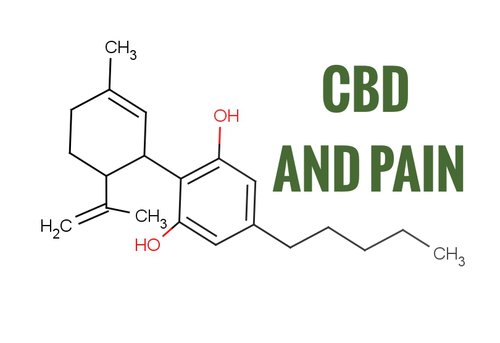People experiencing chronic pain and inflammation rely on the relief of medicine depending on the severity of their pain. CBD can drastically control pain management and serve as an alternative for those suffering from any type of pain.
Cannabidiol (also known as CBD) is a compound found in the hemp and marijuana plant that is free of any psychoactive properties of THC. Unlike its counterpart, CBD acts as a non-addictive stimulant, making it a predictable substance to use. The attributes of Cannabidiol act as an antioxidant and anti-inflammatory agent without the feeling of being high or stoned.
CBD Regulates Cytokine Production in Immune Cells
Cytokines are a diverse group of non-antibody proteins that act as mediators between cells. They regulate diverse functions within the immune system and play as a host defense. A change in cytokine secretion caused by drugs of abuse could have a negative impact on the immune system and metabolism. In reverse, CBD has been known to exert anti-inflammatory activities to areas of tension within the body.
To conclude, cytokine does for the immune system what any probiotic would do. In other words, cytokines regulate the immune system by either initiating or resolving inflammation. If a person experiences chronic inflammation, then the direct connection of cytokines may be out of balance, which CBD helps to regulate.
Inflammation on Oxidative Stress with CBD
You would be surprised by the dangers of increased Oxidative stress and will find that CBD is the key in fighting reactions in the immune system, against pathogens, and even works to establish tissue repair. Neglected or unresolved issues can increase oxidative stress and cause further dysfunction.
To discover the effects of all components of marijuana, the endocannabinoid system (EC) is a unique component in the body that affects many important functions including mood and pain sensation. The EC is a complex physiological network within the human body that can be seen through the reaction of stress and fear responses. Attached to the G protein-coupled receptor superfamily and located within the EC system are two cannabinoid receptors.
The two cannabinoid receptors within the endocannabinoid system are…

CB1 receptors play a role in memory, mood, sleep, appetite, and pain sensation.
CB2 receptors are responsible for marijuana’s anti-inflammatory effects and are found in the immune system.
The endocannabinoid system seeks to promote a stable internal environment known as homeostasis. The endocannabinoid system is useful in terms of its interaction with the Cannabidiol compound and its non-psychotropic effects. The witnessed effects of a new way to treat anti-inflammatory disorders, and its development, is a great way to treat oxidative stress for a wide range of diseases.
With the risk of organ damage or any further ailments, oxidative stress has the chance to be regulated by the usage of CBD.
CBD Reduces Intestinal Inflammation by Controlling Reactive Gliosis
CBD indeed unravels a new therapeutic strategy to treat inflammatory bowel diseases.”
The first observation of Glia cells (EGC) is to create a verifiable response to the Central Nervous System and immune system by mediating chronic inflammation. Many studies have suggested the manipulation of CBD to relieve intestinal inflammation. CBD targets reactive gliosis by controlling psychotropic effects.
EGC is also known as the “little brain in the gut,” because they regulate several gastrointestinal functions by balancing the blood systems.
CBD is an interesting compound within the health and wellness sphere and again, has the ability to control reactive gliosis with an absence of any psychoactive effects. With a regulated dosage, you never have to worry about any high effects.
If you find yourself suffering from any mild to chronic pain, try the likes of all CBD topicals, oils, and capsules depending on preference.

